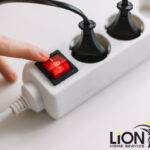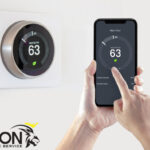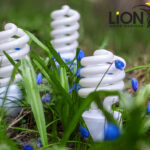Are you curious about common electrical behaviors that are putting your family at risk? Worry no more. This article will address some of the most common electrical hazards we encounter in the home and outline how to avoid them.
Watch your Wattage
Avoid electrical overload by always ensuring you are not surpassing the recommended wattage level on your appliances. To check the wattage level on fixtures like lamps, look at the base of where the light bulb screws in and look for a sticker or writing that outlines the maximum bulb wattage you should be using.
Don’t Overload your Outlets
As tempting as it is, try not to overload your power sockets. Most frequently, people experience shortages when trying to plug too many devices into one socket, whether through an extension cord or power strip. This can also lead to fires and hazards, so only plug 1-2 devices into a socket at a time.
Unplug Unused Appliances
When huge appliances are not in use, you can save energy and reduce fire hazards by simply unplugging them. This action is not always feasible as appliances are often in use. However, in cases where you will not be home, such as vacations, it is quick and easy to unplug before leaving.
Provide Proper Air Circulation
Air circulation is more of an issue for electronic devices than any other fixture, but improper circulation can cause severe home damage. Most specifically, appliances like computers, laptops, and certain gaming consoles have been known to overheat. Unplug the charger when these devices are fully charged or not in use.
Protect Children from Hazards
We recommend a few essential tips to help prevent your children from experiencing electrical shock. First and foremost, buy plastic plugs for all unused sockets. Second, invest in wire covers for areas like home offices or entertainment centers with many wires to ensure children cannot plug or unplug wires.
Lion Home Service keeps you and your family safe from electrical hazards. For more electrical safety tips and tricks, Visit our Website or Reserve an Appointment with one of our electrical experts today!
Did you like your last electrical service call from the experts here at Lion? Feel free to leave us a review at one of our locations below!
Looking for help with your Tampa plumbing? Well, then check out the services our friends offer at ACS Home Services! They offer everything from HVAC to plumbing and even electrical. Look them up in the following locations today:








